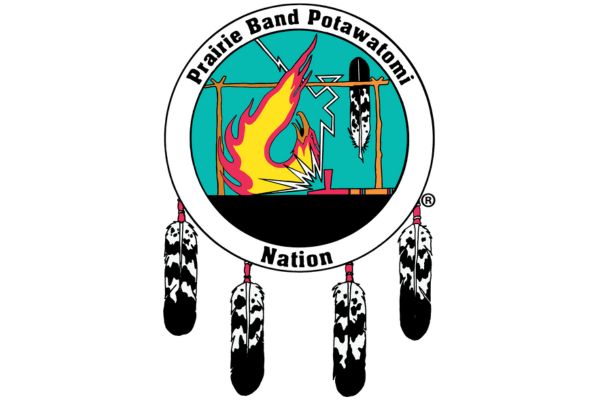
- Details
- By Native News Online Staff
Illinois Governor JB Pritzker signed three bills into law on August 4 that will increase protections for Native American gravesites and more across the state.
The bills include procedures for the treatment of Native American remains, protections for wearing regalia at graduation ceremonies, and mandates Native American history to be taught in public schools.
The laws include:
HB3413: Amends the Human Remains Protection Act to establish procedures for encountering human remains or gravesites. Additionally, the law brings the Illinois State Museum in coordination with federally recognized tribes with ties to Illinois to determine the remains' tribal identity and return them to the appropriate burial.
SB1446: Protects the rights of Illinois students to wear accessories that reflect cultural, religious or ethnic heritage protected under the Illinois Human Rights Act at graduation ceremonies.
HB1633: Includes Native American history to the list of required curriculum for state public schools. The law specifically mentions requirements focused on teaching about the genocide and forced resettlement of Native Americans by settlers and the history of tribes in the midwest.
Prairie Band Potawatomi Nation Chairman Joseph Rupnick praised the legislation for taking steps to undo the grave injustices done to Native Americans at the hands of colonizers.
“Illinois has made tremendous strides this year in its work to repair the centuries-long injustices that started with colonizers doing everything they could to extinguish our people and the origins of this land on which the U.S was constructed,” said Prairie Band Potawatomi Nation Chairman Joseph Rupnick in a statement. “Illinois today proved that a government is capable of reflecting on its past injustices and planning for a future that respects and celebrates our interconnectedness.”
Thousands of Native remains and artifacts currently sit in museums across the country. According to a statement released by the governor’s office, many remains were dug up by the Department of Transportation to build highways years ago and were housed in desk drawers. The state is in the process to return 1,100 of the 7,000 Native American remains it currently holds.
“Native tribes have existed since before colonization, and our land and culture are the foundation of our society. Yet the remains of thousands of our ancestors have been in the hands of the government and institutions, just as our Native lands have been for centuries,” said Rupnick. “By signing this bill today Pritzker is undoing a modern-day extension of colonization. This new law will bring respect to our ancestors the way they should’ve been respected centuries ago.”
Illinois is the only state in the Midwest — and one of 15 states across the country — without a federally recognized Native tribe. The state sits on the ancestral lands of numerous indigenous tribes and is home to approximately 35,000 Native Americans. The Prairie Band Potawatomi is still advocating for Congress to pass a plan to officially recognize their land.
In 1849, the U.S government illegally auctioned off more than 1,280 acres of Potawatomi Chief Shab-eh-nay’s land near the village of Shabbona in southern DeKalb County. Illinois owns and operates a state park on a portion of the Prairie Band’s 1,280 acres. The state has the agency to return that back to the Prairie Band with legislation or through executive action.
"Although our land was illegally taken from us, we're still here, living and contributing to life in Illinois, all while practicing our traditions and serving our country," Rupnick said. "We may not yet have our Reservation land back in the hands of our tribe, but we have the truth and increasing acknowledgement that our cause is just."
More Stories Like This
Native News Weekly (August 25, 2024): D.C. BriefsNative News Weekly (February 22, 2026): D.C. Briefs
NCAI Releases Sttatement on the Passing of Rev. Jesse Jackson
Colusa Indian Energy Participates in Port of Quincy Town Hall on Columbia Basin Power Project
Q&A: Jingle Dress Dancer Answered Call to Ceremony in Face of ICE Violence
Help us defend tribal sovereignty.
At Native News Online, our mission is rooted in telling the stories that strengthen sovereignty and uplift Indigenous voices — not just at year’s end, but every single day.
Because of your generosity last year, we were able to keep our reporters on the ground in tribal communities, at national gatherings and in the halls of Congress — covering the issues that matter most to Indian Country: sovereignty, culture, education, health and economic opportunity.
That support sustained us through a tough year in 2025. Now, as we look to the year ahead, we need your help right now to ensure warrior journalism remains strong — reporting that defends tribal sovereignty, amplifies Native truth, and holds power accountable.
 The stakes couldn't be higher. Your support keeps Native voices heard, Native stories told and Native sovereignty defended.
The stakes couldn't be higher. Your support keeps Native voices heard, Native stories told and Native sovereignty defended.
Stand with Warrior Journalism today.
Levi Rickert (Potawatomi), Editor & Publisher


